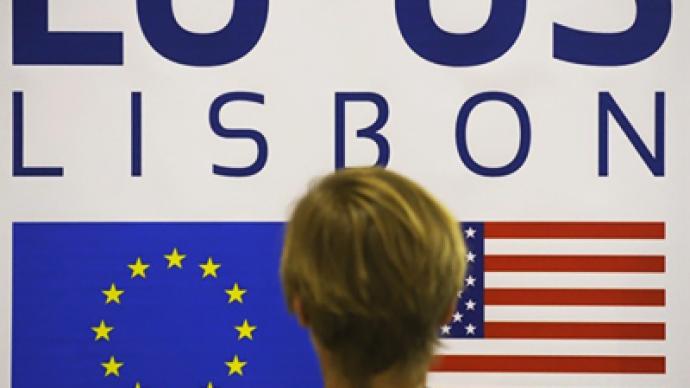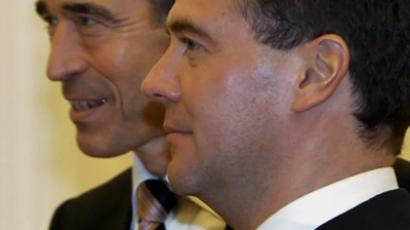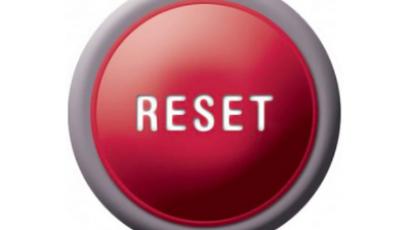NATO summit tries to tackle alliance’s identity crisis

Created more than 60 years ago to counter the Cold War threat of the USSR, the NATO alliance is now in a search of a new, clear goal, which it is expected to present at a summit which opened in Portugal.
NATO is the biggest and oldest military alliance in modern times. But when you come to think about what its place in the world today is, the answer does not come easily. Decades after the Cold War ended, NATO member countries have no common enemy.“Originally it was supposed to defend Western Europe against the Soviet Union,” said Ivan Eland, the director of the Center on Peace & Liberty at the Independent Institute.NATO allies have been at a loss for a new one – and at a loss for a clear purpose.“NATO has been in identity crisis for a while,” said Patricia DeGennaro, adjunct professor of the Department of Politics at New York University.Weakened severely by the seemingly endless Afghan war, with NATO members growing weary, and countries such as Canada and the Netherlands pulling troops out, the power of the bloc is in question.“Now in Afghanistan and in many other places in the world we are seeing the consequences of the lack of NATO’s ability to transform and adapt,” said Dmitry Suslov, political analyst for the Council for Foreign and Defense Policy.And perhaps, that is the consequence of a growing group of now 28 nations driven together, but still largely led by the interests of one.“The US is trying to use NATO directly and indirectly – directly it is trying to use NATO as it does in Afghanistan to fulfill American missions,” Suslov added.Yet everyone feels the strain. And with goals not having been laid out since before the 9/11 attacks which drove the alliance into war, there is little in the way of concrete aims to guide an organization seemingly in crisis – which is just one reason why now in Lisbon, this meeting matters.The alliance is going to try to vie for modern relevance with the promise of “new strategic goals”, but also in Lisbon, are a group of “international critics”, who believe there is no place for NATO in the 21st Century.“I am not sure that NATO is in the 21st Century, and I think it is outdated,” Ivan Eland said.One of the critics, Reiner Braun, is planning an anti-NATO protest.“I think there is no place for NATO. I think there is no place for military alliances any longer in the world, because you can’t solve any of the global problems with military. None,” he believes.
Pepe Escobar, a South American based journalist for the Asia Times, told RT that the current NATO summit is about promoting Pentagon doctrine around the world, in effect making the Alliance the new United Nations.“They are discussing the so-called strategic concept in Lisbon. This means, ‘We keep our nuclear weapons, between 200 and 300 American, old, plus 200 from France, plus 225 from Britain. We build this huge dome, the missile dome which might protect us because it has not been tested yet against non-existent Iranian missiles and existent North Korean missiles and we plan to expand our operations all over the world,’ which is what they are actually doing,” Pepe Escobar said. “They are already in Central Asia, in Northern Africa, they plan to expand to South Pacific. They plan to expand to South Atlantic, even here in South America. So NATO now is the new UN. It’s a global operation.”
NATO wants Russia as missile defense ally
NATO is now looking to an old foe for help in solving its problems.“It is impossible for NATO to deal with such burning issues as the ongoing war in Afghanistan without Russia, which has now emerged as one of the basically leading global players,” says Viktor Mizin from Moscow State University of International Relations. NATO now seems to be sending a clear message – it is courting Moscow to sign up to a joint missile defense shield, and it is hoped that President Medvedev's attendance could signal a historic turn in relations between the two sides as NATO’s defense plans have been a sticking point between NATO and Russia.
A meeting of the NATO-Russia Council is to take place later on Saturday.Evgeny Bazhanov, vice-rector of the Russian Foreign Ministry's diplomatic academy, says Russia and NATO have no ideological differences and there is a good basis for the development of their relations.“We hope that, in the 21st Century, NATO will start treating Russia as an equal partner,” he said. “We don’t have any ideological differences, we built a democratic society with a market economy and I think the West wants Russia to go along this road. Also, we have very intensive social, economic and other ties with the NATO countries and we have a very concrete security agenda which unites us and the NATO countries.”
Thomas Klau from the European Council on Foreign Relations think-tank believes Russia does need cooperation with NATO, given the new geopolitical realities; namely the rise of China. He says Moscow has “to apply modern thinking” and “realize that in many ways NATO is an element of stability of Russia’s geographical, geo-strategic and political environment and space”.“The geo-strategic situation of Russia is changing in a very meaningful way because Russia’s neighbor, China, has mutated into this new global power economically – but also politically – to possibly become the dominant power of the 21st century 20 or 30 years down the road,” he told RT.
Meanwhile, Russia's representative to NATO, Dmitry Rogozin, says Russia wants the alliance to become more predictable and not to threaten its security. “For us, NATO is a big headache,” Rogozin said. “It used to be an enemy, now an unpredictable partner, the left hand of which doesn't know what the right hand is doing. We are tired of this. We want more stability and security on our western borders and in the long-run, maybe even certainty that there will be no trouble at all.”
The alliance is looking to Russia for help with supply routes and fighting the drug trade. And now, an organization that famously touted a mission of “keeping the Russians out and the Americans in” needs the Russians “in” Afghanistan to help Americans get out.Russia is re-emerging as a fully-fledged partner of the alliance, stated Sergey Strokan, political commentator for the Kommersant newspaper. Joint anti-drugs actions in Afghanistan and Russia’s buying weapons from NATO are very promising steps, but there are still many important issues to be discussed at the summit, he said. “Firstly, we expect something more than just a polite ‘yes’ to President Medvedev’s idea to create a comprehensive European security pact. Because whatever we hear now sounds actually like ‘no’, though it is ‘yes’,” Strokan explained to RT. “The second thing is that we want a more elaborate explanation of what NATO expects from us when they propose us to create a joint defense shield. We want NATO to spell out the list of threats and challenges. And finally, we have to clinch a [co-operation] deal in Afghanistan. This is the most promising part of the summit, when we speak about Russia’s interests.”
Without a major rethinking of its goals, policies, and missions, an alliance looking for a new place in the world may find itself fumbling along without one.
Germany-based political observer Christoph Hoerstel believes that the general approach to solving problems at the NATO’s summit is incorrect.“There are too many strategic differences and they are not really discussed,” he said.On the other hand, Hoerstel noted, the Alliance is not the only one to blame.“Moscow’s policy towards Europe is, in fact – in the conduct of foreign policy – a bit outdated,” he explained. “Moscow is reaching out to the governments, not enough to the people. And that means that there’s not enough public support within Europe, within Germany, for example, for better Russian ties. And that’s what people like me hope for.”Hoerstel also pointed out that Russia “is not in the position right now to be strongly defended as a new partner within NATO by some of the NATO partners”.“And this to overcome will take years, I think”, he concluded.














